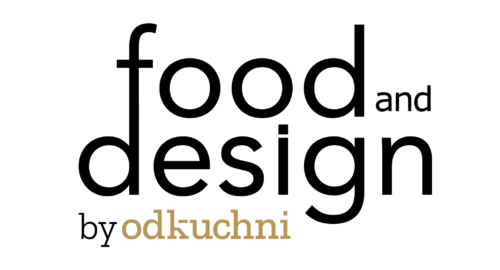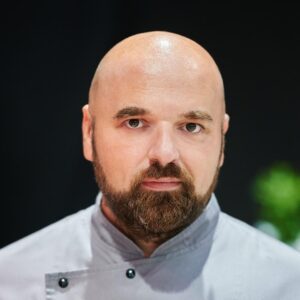On the eve of the summer holidays, we will meet as part of the Food Working cycle. This time we focused on the topic of meat of the future. Plant-based alternatives, cell-based meat, or maybe a twist on tradition? Let's take a look at what awaits us in the coming years and what experts said about this during the last debate.
Changing the eating habits of Poles
As follows from the data presented by Grzegorz Mech, Business Development Manager in the household panel of GfK Polonia, poultry and pork are the most preferred types of meat for Poles. Almost one in three of us prepares meat dishes at least several times a week (73%). Despite the fact that meat is purchased by a high and stable number of Polish households, researchers observe a decrease in the volume of purchases in this category.
A third of consumers say they are trying to reduce their meat intake in their diets. This is especially true for women and the elderly. However, according to research, in Poland only 2% are vegans, and 4% are vegetarians ( ... ). But already almost half of consumers consume plant-based meat substitutes - comments Grzegorz Mech.
The GfK study also shows that the most common reason for using plant substitutes is a desire to try novelty (37%). As Marcin Tischner, Corporate Engagement and Sustainability Specialist, ProVeg Poland, noted during the Food Working meeting, alternative protein sources, including plant-based products, will play an increasingly important role in the meat market, as their price, compared to zoonotic meat, may become lower in the near future, which is the result of intensive research. technological development.
An interesting, though for many, it is certainly difficult to imagine a vision, presented Wiesław Macherzyński, chief operating officer of LabFarm, based on data from A. T. Kearney from the World Bank report.: in By 2040, traditional meat is expected to account for 40% of the meat market, alternatives to meat-25%, and cellular meat-35%. LabFarm is the first Poland to develop cellular meat technology. Although it still seems like a very distant topic in Poland, it is becoming more accessible abroad.
From animal cell to sausage. How cellular meat is made?
Raising cattle, poultry or pigs is not only a huge expense and a big environmental intervention, but also a long process. All these problems are answered by cellular meat, which, although still expensive today and completely inaccessible in many countries, should become a targeted alternative to humanity.
The production of cellular meat begins with a biopsy, that is, taking animal cells. Then they are sorted, tested, set up cell lines where they grow and get a nutrient medium. In this process, the idea is to create conditions for the cells similar to the animal's body. The next step is to scale up production in bioreactors, i.e. devices where cells grow. Although the further process is quite complex, the final result is a material that may resemble minced meat. In the technological process, they can be molded arbitrarily, for example, for a burger or nuggets - Wiesław Macherzyński comments.
How long will the cultivation of cellular meat continue in Poland? The goal of the experts is reduce the time to eight days – from the start of breeding to the final product, such as sausages. The vision of the future is to create such conditions in households that in a few years Poles will have their own bioreactors, in which they can grow meat independently in accordance with trends and needs – for example, without cholesterol.
Trump Card nomenclature
Not only education, which experts have repeatedly mentioned during past debates at the Food Working meeting, but also naming can be a key role in persuading Poles to try the meat of the future. What terms are used today? Clean meat, artificial meat, cell-based meat, synthetic meat, lab-grown meat, cultured meat, in-vitro meat, cultivated meat.
English-language phrases that are not fully understood by the Polish consumer, of course, need alternative (nomen omen) phrases. According to a ProVeg Poland representative clean in relation to cellular meat, it is assumed that traditional meat is not pure. This may cause hostility among meat processing plants, which should become an ally of this technology. The best English-language version, according to ProVeg, is currently available cultivated meat (English cultured / cultured meat), and a local study would be useful for choosing a Polish term.
Cell culture in the light of the law
On the question of whether there is a real chance of importing cellular meat to Poland, Agnieszka Szymecka-Wesołowska, a lawyer at the Center for Food and Grocery Law (FOODLAW), said yes without hesitation.
There is a procedural path for this, which will probably soon become a " highway». And the point is not "if" we will introduce cellular meat, but "when" it will appear on our plates. The introduction of products that were not consumed before 1997 into the European Union requires approval, i.e. application and confirmation of the safety of these products. Today there is a kind of race, because the first applicant will have the opportunity to apply for scientific data and bring these products to the market exclusively. So, who is the first best in Europe? - adds an expert advisor.
According to Agnieszka Szymecka-Wesołowska, everything from a legal point of view is divided into two things – safety and labeling products. The European Union clearly defines the conditions and requirements for labeling new products.
The future of the meat industry is not so clear
Many of us enjoy trying out new products and enthusiastically expect new alternatives to traditional meat. As Marcin Tischner commented during the Food Working meeting: The plant-based industry has made tremendous progress in recent years, and although lower-quality products (as with meat products) are still found, the plant world has obviously caught up. Consumers not only admire the fact that this product is vegetable, but also look for additional qualities in the product-taste, consistency, frying method, smell, price. An expert from LabFarm stressed that by analyzing the potential in the production of traditional meat by Poles, our country has a chance to become a European center in the field of cellular meat.
Which way will the Poles go? In the direction of conservative Italians or open to innovation in Western countries such as the United States, Great Britain, Canada, as well as South Korea, Israel or Australia? We will definitely find out about this in the coming years.
Thank you to our exceptional experts for participating in the last Food Working cycle event! We also express our gratitude to our partners: Tim S.A., browar Trzech Kumpli, Deli Catering, ProVeg Polska, JW Films, DPD, HAYB, SLODKIE, oraz Patronów Medialnych: KUKBUK, WPROST, Handel, Handel Extra, Food Service, Gastrowiedza, Restaurant Management, Magazyn Restauracja, Biokurier, Nowości Gastronomiczne, Horeca.net.
We invite you to the next Food Working after the holidays!































 Junior specialist in Marketing Communications and PR.
Junior specialist in Marketing Communications and PR.


 He is a graduate of the University of Warsaw and the Main School of Agriculture. We have been in the HoReCa industry for more than 10 years. For many years, he has been associated with the Trip group, Sobienie Royal Golf and Country Club, and the Florentin Restaurant in Warsaw.
He is a graduate of the University of Warsaw and the Main School of Agriculture. We have been in the HoReCa industry for more than 10 years. For many years, he has been associated with the Trip group, Sobienie Royal Golf and Country Club, and the Florentin Restaurant in Warsaw. She graduated from the Faculty of Architecture of the Warsaw Technical University with a degree in Architecture for the Knowledge Society and Visual Communications at the Polytechnic University of Milan. A specialist in creating a mood. She has gained experience at home and abroad at numerous international seminars (Seville, Lisbon, Florence), fellowships at La Sapienza (Rome), etc. m.in. in Carmi e Ubertis and ADM Milano.
She graduated from the Faculty of Architecture of the Warsaw Technical University with a degree in Architecture for the Knowledge Society and Visual Communications at the Polytechnic University of Milan. A specialist in creating a mood. She has gained experience at home and abroad at numerous international seminars (Seville, Lisbon, Florence), fellowships at La Sapienza (Rome), etc. m.in. in Carmi e Ubertis and ADM Milano.








 A manager with many years of experience in the cosmetics, food, and children's industries. During his career, he was associated with such companies as: L'Oreal, Samsung, Danone-Nutricia, Unilever. During his professional life, he was responsible, among other things, for the development of e-commerce sales and content in Poland and the countries of Central and Eastern Europe.
A manager with many years of experience in the cosmetics, food, and children's industries. During his career, he was associated with such companies as: L'Oreal, Samsung, Danone-Nutricia, Unilever. During his professional life, he was responsible, among other things, for the development of e-commerce sales and content in Poland and the countries of Central and Eastern Europe. 

























































